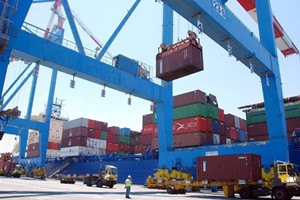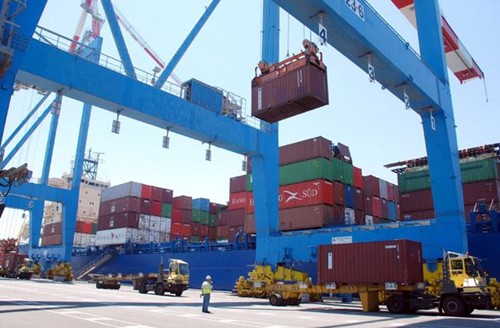
At a conference last week in Chicago, delegates representing dock workers from around the world voted unanimously to support a resolution submitted by the Histadrut (Federation of Labor in Israel) supporting the dock workers in Israel.
The conference, organized by the International Transport Workers Federation, took positions on a number of international disputes including the UK, USA and Australia and according to the press release issued by the ITF, “there were also emergency motions regarding support for port workers in Israel where the government has announced the establishment of two new ports.”

Ashdod Port (Photo: Israel Ports Authority)
According to the resolution “the announcement was made while sending defiant and threatening messages to the workers’ organization, without holding negotiations with the workers’ organization and without dealing with the devastating repercussions on the existing ports as a result of the establishment of new ports.” The resolution condemns the harsh remarks of the Minister of Economy before the announcement whether by threatening to bring the army into the ports or whether by publishing a post on his Facebook page in which he makes a horrible, despicable and inciting comparison of the port workers and the ants that need to be eliminated and the incitement campaign that the Israeli government has held for a long time against the port workers in particular and against organized labor in general.
The Histradrut has officially declared a labor dispute at Israel’s seaports on Sunday, after the meeting between Prime Minister Benjamin Netanyahu and Histradrut Chairman Ofer Eini ended without result. Netanyahu refused to freeze the tenders for construction of new and private ports at Ashdod and Haifa. The declaration means that the port workers will be able to strike after 14 days. The Histadrut made clear to Netanyahu last week that only freezing the tenders would create conditions for negotiations and prevent a labor dispute.


